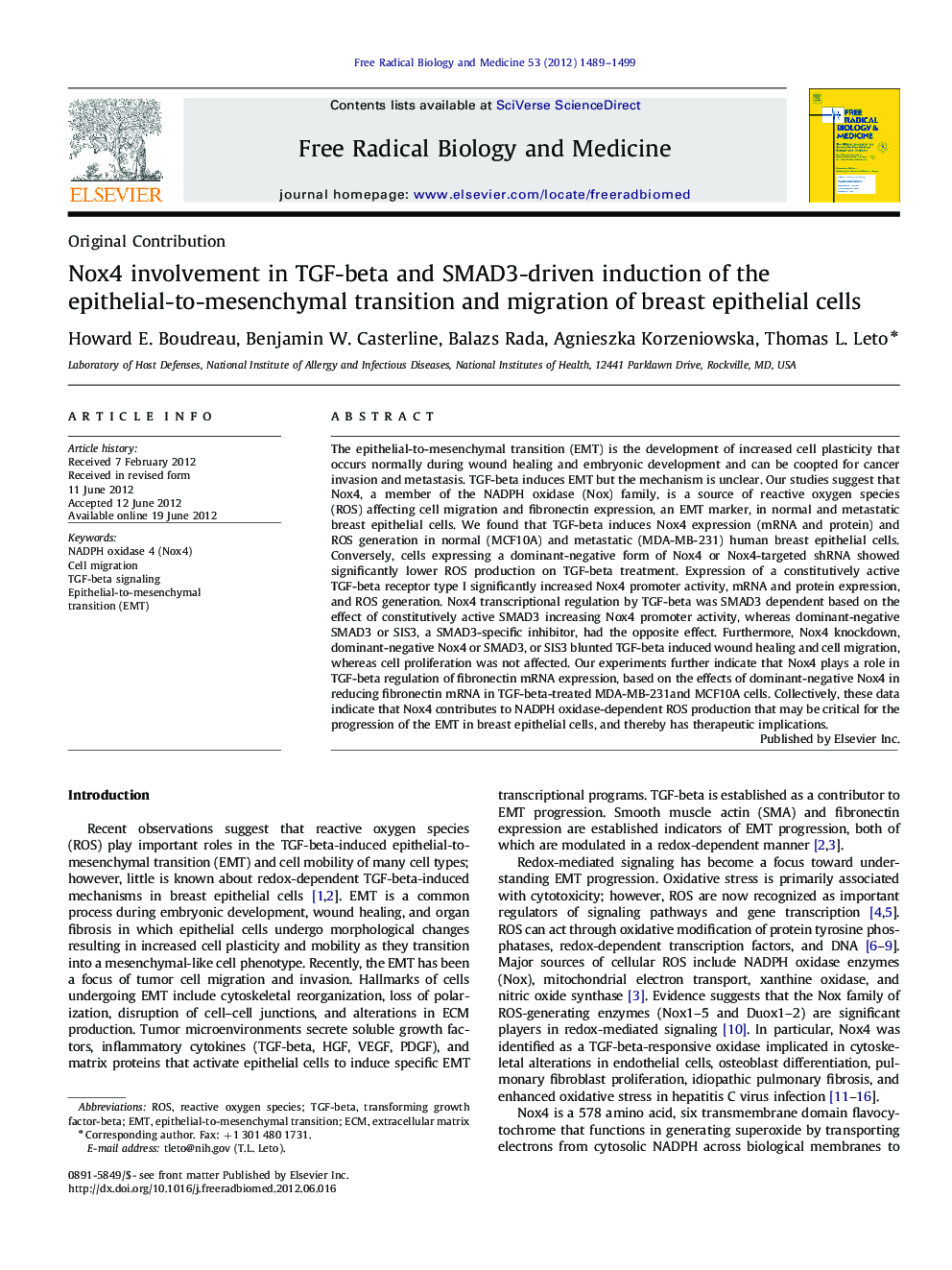| کد مقاله | کد نشریه | سال انتشار | مقاله انگلیسی | نسخه تمام متن |
|---|---|---|---|---|
| 1908634 | 1046675 | 2012 | 11 صفحه PDF | دانلود رایگان |

The epithelial-to-mesenchymal transition (EMT) is the development of increased cell plasticity that occurs normally during wound healing and embryonic development and can be coopted for cancer invasion and metastasis. TGF-beta induces EMT but the mechanism is unclear. Our studies suggest that Nox4, a member of the NADPH oxidase (Nox) family, is a source of reactive oxygen species (ROS) affecting cell migration and fibronectin expression, an EMT marker, in normal and metastatic breast epithelial cells. We found that TGF-beta induces Nox4 expression (mRNA and protein) and ROS generation in normal (MCF10A) and metastatic (MDA-MB-231) human breast epithelial cells. Conversely, cells expressing a dominant-negative form of Nox4 or Nox4-targeted shRNA showed significantly lower ROS production on TGF-beta treatment. Expression of a constitutively active TGF-beta receptor type I significantly increased Nox4 promoter activity, mRNA and protein expression, and ROS generation. Nox4 transcriptional regulation by TGF-beta was SMAD3 dependent based on the effect of constitutively active SMAD3 increasing Nox4 promoter activity, whereas dominant-negative SMAD3 or SIS3, a SMAD3-specific inhibitor, had the opposite effect. Furthermore, Nox4 knockdown, dominant-negative Nox4 or SMAD3, or SIS3 blunted TGF-beta induced wound healing and cell migration, whereas cell proliferation was not affected. Our experiments further indicate that Nox4 plays a role in TGF-beta regulation of fibronectin mRNA expression, based on the effects of dominant-negative Nox4 in reducing fibronectin mRNA in TGF-beta-treated MDA-MB-231and MCF10A cells. Collectively, these data indicate that Nox4 contributes to NADPH oxidase-dependent ROS production that may be critical for the progression of the EMT in breast epithelial cells, and thereby has therapeutic implications.
Figure optionsDownload high-quality image (210 K)Download as PowerPoint slideHighlights
► We show that Nox4 is involved in the epithelial-to-mesenchymal transition.
► TGF-beta induces Nox4-dependent ROS generation and migration of epithelial cells.
► Inhibition of Nox4 or SMAD3 attenuates TGF-beta-mediated cell migration.
► Inhibition of SMAD3 significantly reduces TGF-beta-induced Nox4 promoter activity.
► Nox4 is involved in TGF-beta-induced fibronectin expression.
Journal: Free Radical Biology and Medicine - Volume 53, Issue 7, 1 October 2012, Pages 1489–1499